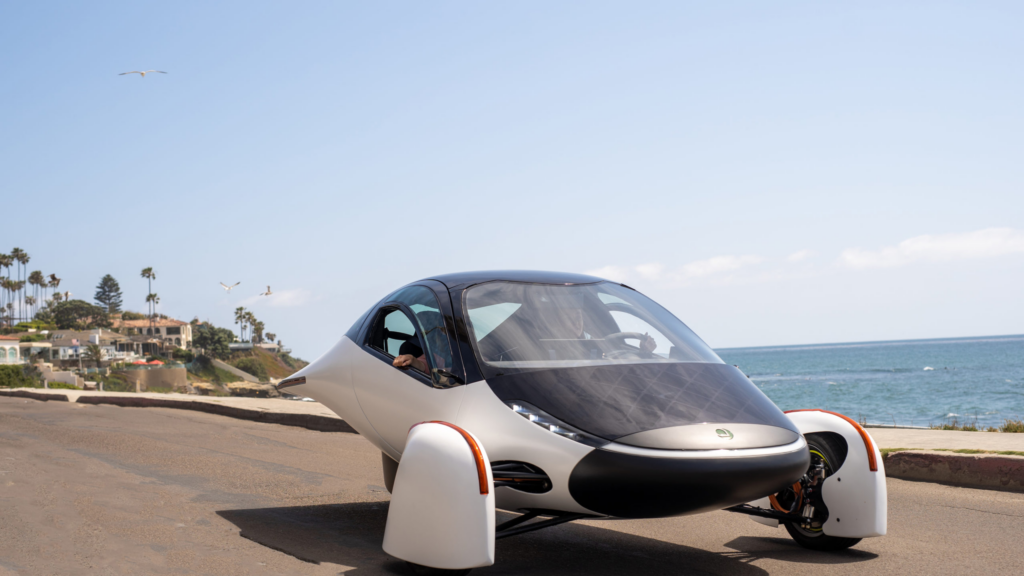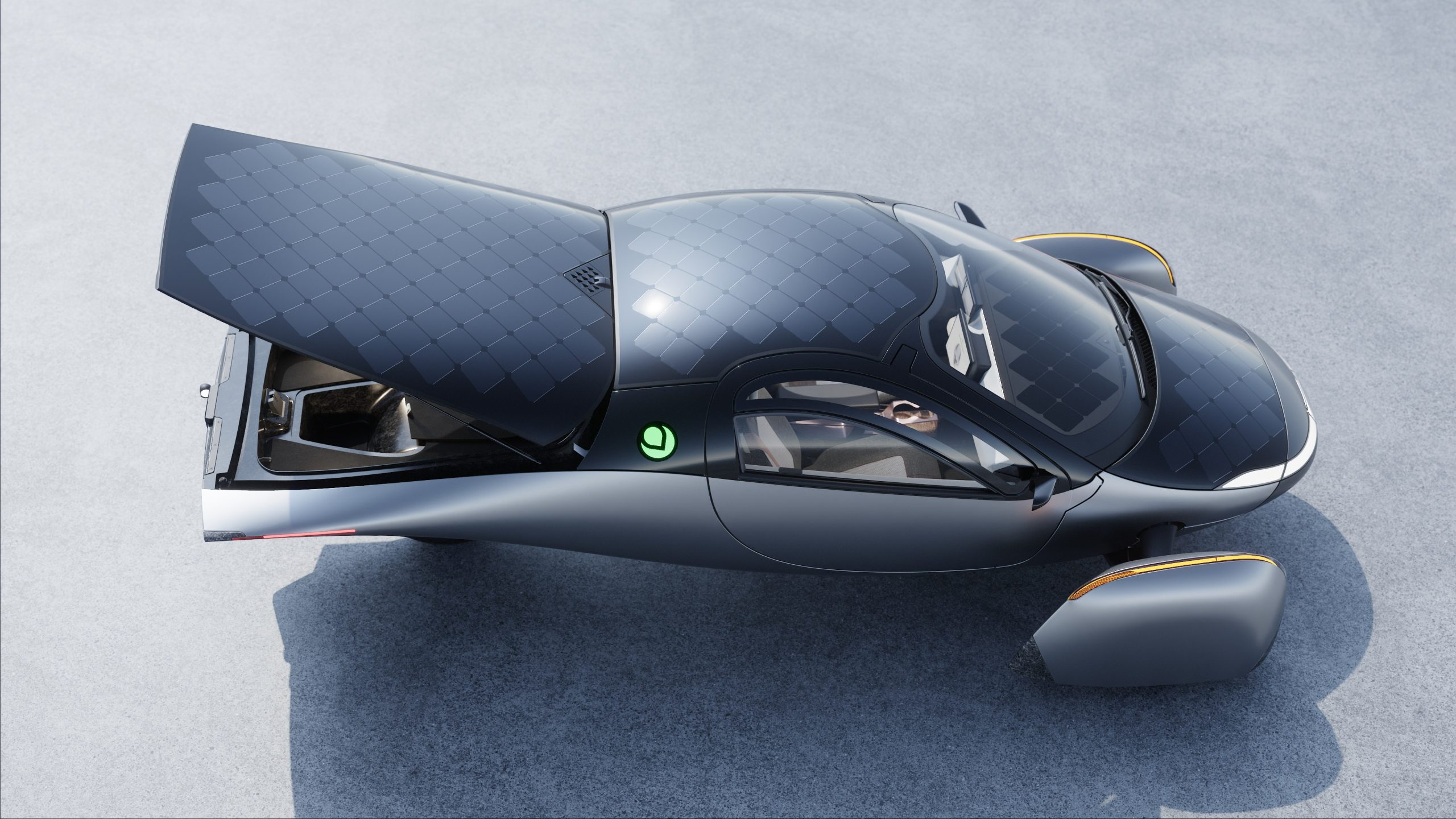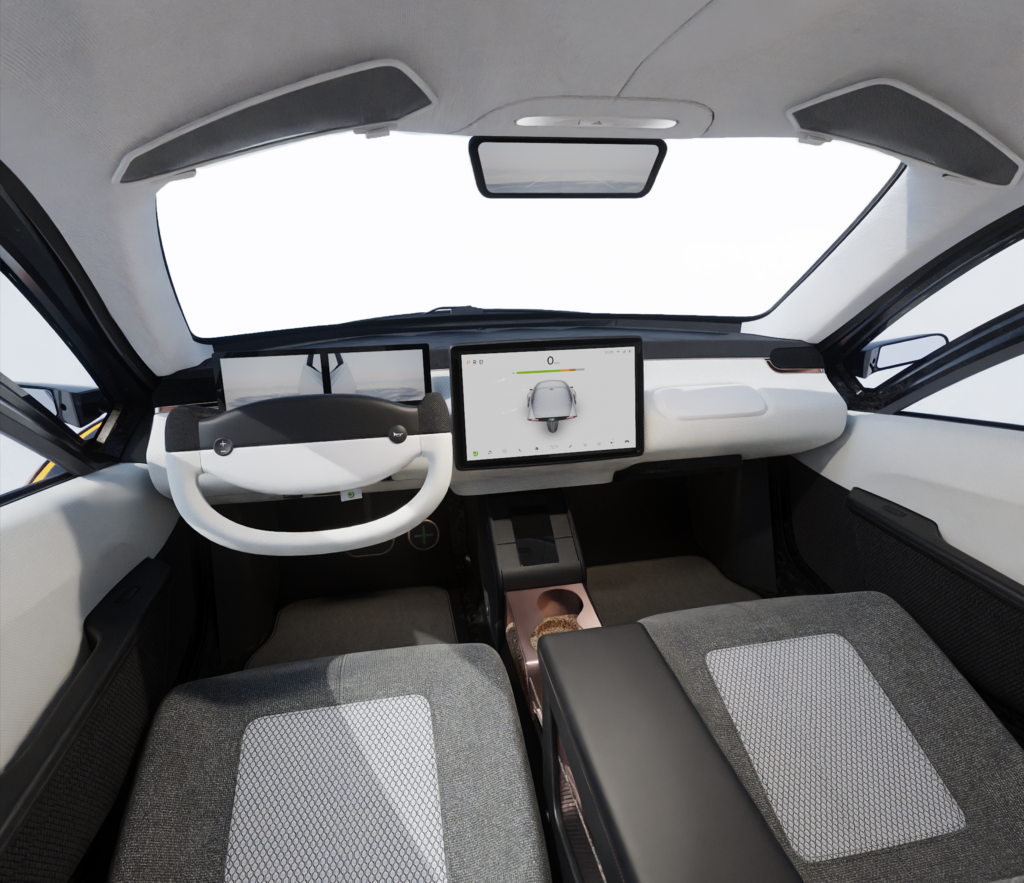Aptera Motors is making waves with its bold claim of a solar-powered electric vehicle (sEV) that can cover significant distances without ever plugging in (1000 miles?). It’s a fascinating and futuristic premise, but as with any groundbreaking technology, it invites a healthy dose of skepticism. Let’s explore whether this ambitious project is a glimpse into the future or a bridge too far.

Aptera’s three wheeled vehicle specs are nothing short of impressive. The promise of a 1,000-mile range on a single charge and a sprint from 0 to 60 mph in just 4 seconds sounds like the stuff of science fiction. Projected to start at $25,900 MSRP, it also seems surprisingly affordable for owning a car that looks like it’s from Blade Runner. However, the real kicker is the solar integration, which purportedly offers up to 40 miles of driving per day from solar energy alone. While these features are exciting, they also raise questions about real-world application and reliability, especially under less-than-ideal weather conditions or for those living in less sunny climes. So let’s dig into that with a optimistic skeptical approach (optiskeptical is my word, patent pending!)

Solar Charging: Feasible or Futuristic?
The idea of a car that charges itself while you’re at the beach sounds fantastic, but is it realistic? Aptera’s states their solar panels provide about 700 watts of power, which is solid, but solar efficiency can vary wildly depending on geographical and weather conditions. The concept is innovative, but potential buyers might wonder about the car’s performance on cloudy days or during the long nights of winter. Moreover, while the idea of rarely needing a charger is awesome, it might still be a bit optimistic for the average user who may face a variety of driving conditions.

Financial Viability: Promising or Precarious?
Aptera’s financial journey is as interesting as its technical ambitions. With nearly $34 million raised from reservation holders and more funding avenues being explored, including a potential IPO, the company is not short on innovative fundraising ideas. However, the reliance on further investments to reach production raises questions about sustainability and financial stability. The enthusiasm for public investment, including through self-directed IRAs, is a clever strategy, but it also highlights the risks and challenges of scaling such a revolutionary product.
Production and Delivery: On Schedule or Delayed Dream?
Initially promised for 2024, Aptera’s production timeline appears to be slipping into 2025 by some projections. Delays in production are not uncommon in the auto industry, especially for firms pushing technological and conventional boundaries. However, for potential buyers and investors, these delays could raise a bit of an eyebrow. Aptera needs to maintain transparency about its production process and set realistic expectations to keep trust high among its backers. As an example there is concern that Fisker could enter bankruptcy, so there is plenty of mumblings online on where would that leave owners that might need software updates.

A Visionary Venture Worth Watching
Aptera Motors is undoubtedly pioneering and it’s team should be praised as we need visionaries pushing the boundaries. It’s designs are set on changing how we think about mobility and sustainability. The potential of a solar-powered vehicle in reducing carbon footprints is immense and exciting. However, the road from revolutionary concept to reliable consumer product is fraught with challenges. There is no quicker way to spend a large fortune to build a small fortune than starting an automotive company.
For the environmentally conscious and tech-savvy, Aptera offers an enticing vision of the future. As with any innovation, the balance between enthusiasm and realism will be key to Aptera’s success. Whether Aptera will soar into the sunlight or face storms ahead remains to be seen, but it’s certainly a journey worth watching and we certainly will be.





Peak power production of the solar panels on my roof is only 10% of their rated maximum in January. 70W of charge power – ON A CLEAR SUNNY DAY – isn’t going to take the car very far, if you can even count on the sun.
The solar part isn’t a requirement for the vehicle to function. At its core, it’s a regular EV that is simply 2.5 times as efficient on average compared to other electric cars.
Any range you gain from the on-board solar is a bonus.
With a super efficient shape that has a far better coefficient of drag than even the slipperiest car on the market right now (Tesla Model 3), even a small amount of solar can make a difference with the Aptera. It’s all bonus energy… and even if it is a cloudy day panels take in energy. My solar panels work in light fog and light rain with gray skies…. all bonus energy. The Aptera goes many more miles per kWh than any other vehicle which is what makes the solar cells viable. I have an Aptera reserved and the solar cells are the least of my reasons for wanting one… again a bonus, whatever they bring in. 1 mile or 30-40 miles on an optimal day… either way, it’s all good.
The answers to most questions raised here are readily available from Aptera.
They have a strong focus on efficiency – in aerodynamics, construction, manufacturing and management. They have shown testing in a wind tunnel and computer simulations.
The founders are veterans of several start-ups. One of their first business partners is Sandy Monroe, to help design the vehicle and factory for lean manufacturing. They engage openly with social media about their progress.
All the molds have been made and tested. They are now making production intent vehicles.
There is always risk, but I think Aptera has a good chance of success.
I wrote them a deposit check over a dozen years ago, I think even before I bought my 2011 Nissan LEAF. I wonder if I’m even still on the books. Never heard a word from them in all these years. :-/
I was a reservation holder in the period from 2009 until 2011 when Aptera refunded my $500 deposit. If you never received your refund, maybe you moved or something, check California’s unclaimed property for your money back: https://www.sco.ca.gov/search_upd.html